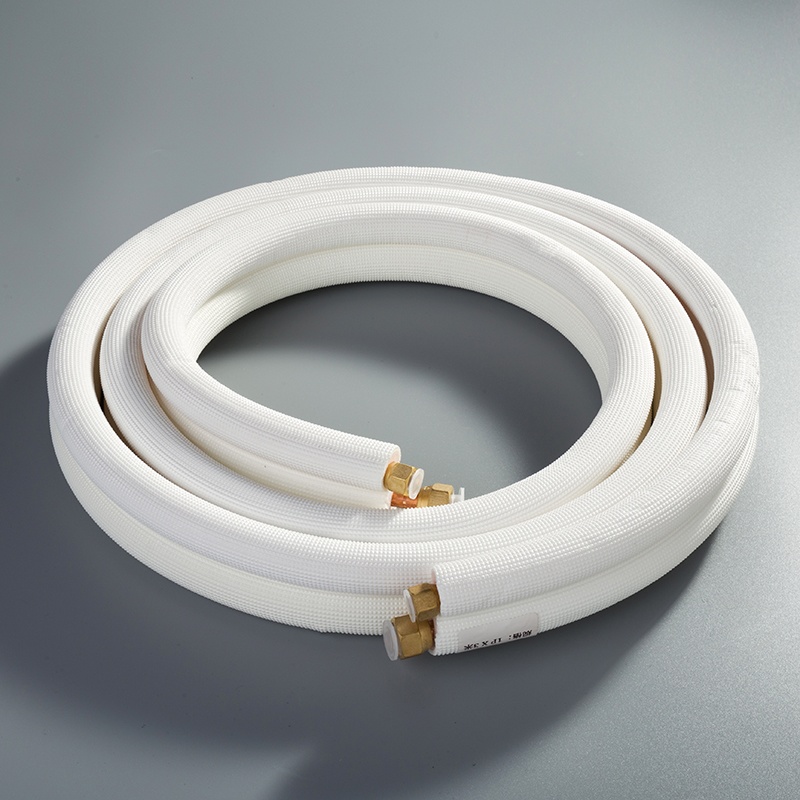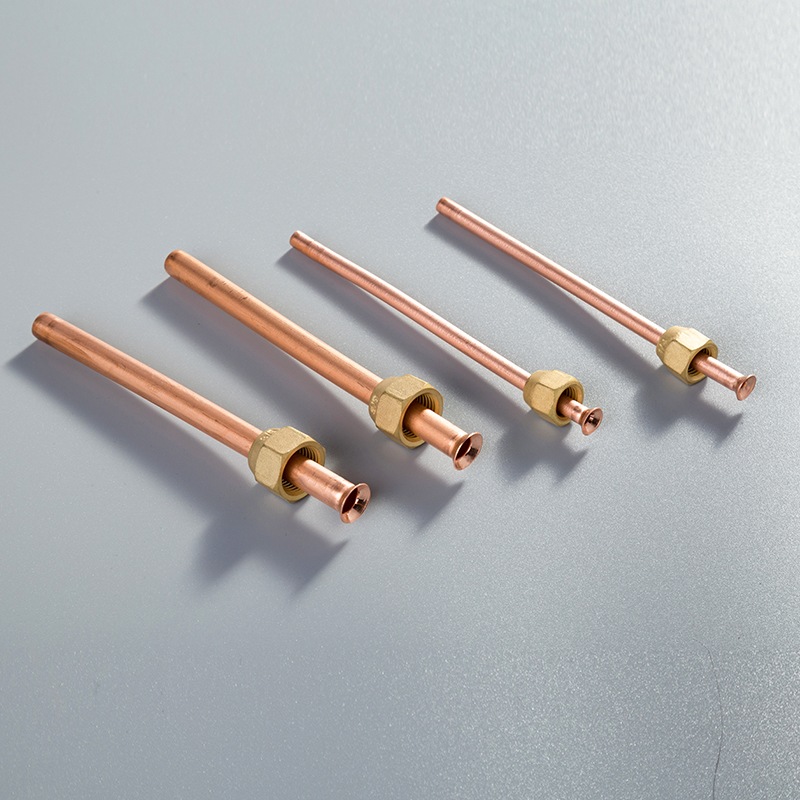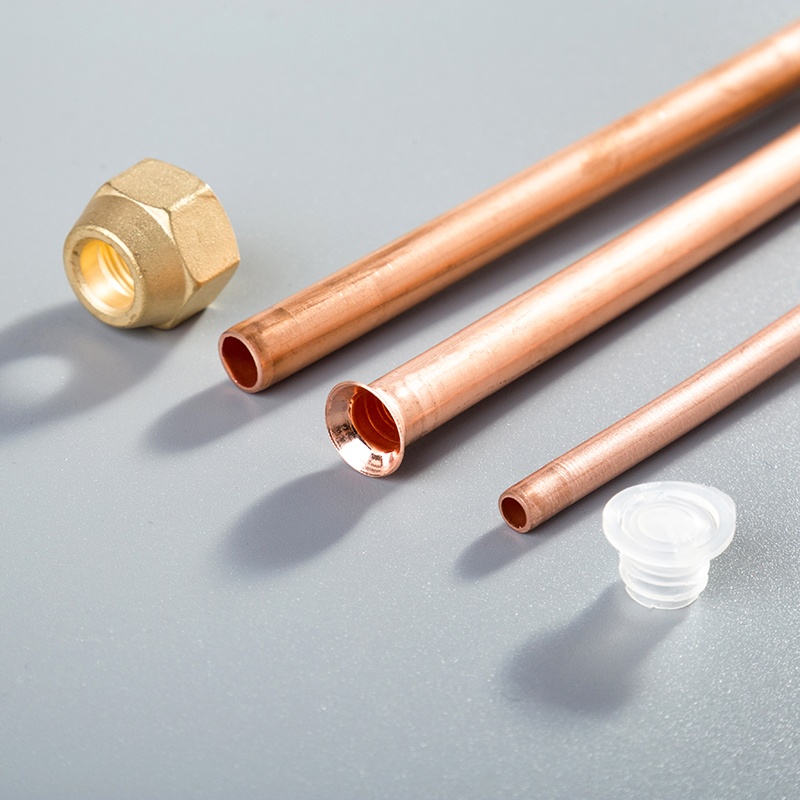Top 5 Tips to Prolong 1/4 3/8 Copper Pipe Coils

Maintaining copper pipe coils is paramount to enhance the durability of 1/4 3/8 twin copper pipe coils with these maintenance tips and ensuring optimal performance. Understanding the importance of upkeep can significantly impact the lifespan of these essential components. In this blog, we will delve into five crucial tips that can help you prolong the longevity of your copper pipe coils effectively. By implementing these strategies, you can safeguard your investment and prevent costly repairs down the line.
Regular Cleaning

When it comes to maintaining copper pipe coils, enhancing the durability of 1/4 3/8 twin copper pipe coils with these maintenance tips is crucial. To start, establish a regular cleaning routine to ensure optimal performance.
Remove Dust and Debris
Begin by understanding the importance of cleaning frequency. By setting a consistent schedule, you can prevent dust and debris buildup that may hinder the coils' efficiency. Utilize appropriate tools and methods such as soft brushes or compressed air to effectively remove any accumulated particles.
Benefits of Regular Cleaning
Regularly cleaning the copper pipe coils offers numerous advantages. It leads to improved efficiency by allowing for better heat transfer within the system. Additionally, this practice extends the lifespan of the coils by reducing strain on the components.
Inspect for Corrosion and Damage
To maintain the integrity of 1/4 3/8 twin copper pipe coils, conducting routine inspections for corrosion and damage is essential. By identifying early signs of deterioration, you can prevent extensive issues that may compromise the functionality of the coils.
Identifying Corrosion
Common Signs
Discoloration on the surface of the copper pipes can indicate corrosion.
Presence of greenish-blue stains suggests chemical reactions with water.
Unusual odors near the coils might signal corrosion processes.
Inspection Tools
Use a magnifying glass to closely examine the surface for tiny cracks or irregularities.
Conduct pH tests on water sources to determine acidity levels affecting the copper pipes.
Employ thermal imaging cameras to detect temperature variations along the coil structure.
Repair and Replacement
Repair Techniques
Apply specialized sealants to minor corroded areas for temporary fixes.
Utilize soldering techniques to reinforce weakened sections due to corrosion.
Implement epoxy coatings to protect vulnerable spots from further degradation.
When to Replace
Consider replacing severely corroded sections that compromise structural integrity.
Evaluate replacement when repairs no longer provide effective solutions.
Prioritize replacement if corrosion continues despite repair attempts.
Ensure Proper Insulation

To enhance the durability of 1/4 3/8 twin copper pipe coils with these maintenance tips, proper insulation plays a vital role in maintaining optimal performance and efficiency. Understanding the significance of insulation can significantly impact the longevity of your system.
Importance of Insulation
Preventing Heat Loss
Insulating copper pipe coils effectively prevents heat loss, ensuring that the system operates efficiently without unnecessary energy wastage.
Accoflex® W is a closed-cell thermal insulation material known for its superior protection against moisture accumulation, ideal for mechanical piping systems.
Utilizing insulation materials like Armacell nitrile rubber insulation helps in retaining heat within the coils, improving overall system performance.
Enhancing Efficiency
Proper insulation enhances the efficiency of 1/4 3/8 copper pipe coils by reducing energy consumption and maintaining consistent temperature levels.
Aflex-Eco, a nitrile insulation foam, offers excellent thermal properties and low water vapor permeability, ensuring long-term efficiency.
Insulation Materials
Types of Insulation
Accoflex® W: Known for its enhanced fire properties and good energy-saving capabilities.
Armacell Nitrile Rubber Insulation: Provides protection against water vapor due to its closed-cell structure.
Aflex-Eco: Ideal for covering copper pipes with various wall thicknesses.
Installation Tips
When installing insulation on copper pipe coils, ensure a snug fit to prevent air gaps that may compromise thermal efficiency.
Regularly inspect the condition of the insulation to address any wear or tear promptly and maintain optimal performance levels.
Check for Leaks
Leak Detection Methods
Visual Inspection
Inspecting copper pipes visually is a fundamental method to identify potential leaks. By carefully examining the surface of the pipes, one can detect any signs of corrosion, discoloration, or moisture accumulation that may indicate a leak. This method allows for a quick assessment of the overall condition of the copper pipe coils and helps in pinpointing areas that require further investigation.
Pressure Testing
Conducting pressure tests on copper pipe coils is a reliable technique to validate their integrity. By pressurizing the system and monitoring for any drops in pressure, one can determine if there are leaks present. This method provides a quantitative assessment of the pipes' ability to maintain pressure and helps in detecting even the smallest leaks that may not be visible during visual inspections.
Repairing Leaks
Temporary Fixes
In cases where leaks are identified, temporary solutions can be implemented to mitigate immediate issues. Utilizing leak-sealing compounds or tapes can provide a temporary fix until a more permanent solution is applied. These quick remedies help prevent further damage while allowing time for proper repairs to be conducted.
Permanent Solutions
For long-term leak prevention, permanent repair solutions are essential. Welding or soldering damaged areas, replacing faulty connectors, or applying epoxy coatings are effective methods to address leaks permanently. By addressing the root cause of the leaks with durable solutions, one can ensure the prolonged functionality and efficiency of the copper pipe coils.
Avoid Bending or Kinking
Proper Handling Techniques
During Installation
Apply proper clamping pressure to prevent rippling or wrinkling of the tube.
Use a wiper die for smooth bends and to avoid buckling during tube bending.
During Maintenance
Ensure sufficient clamping pressure to prevent deformations like kinks or wrinkles.
Regularly inspect the coils for any signs of bending that may restrict flow.
Consequences of Bending
Flow Restrictions
Improper handling leading to bends can cause flow restrictions in the copper pipe coils.
Flow restrictions hinder the efficiency of the system and may result in reduced performance.
Structural Integrity
Bending or kinking compromises the structural integrity of the coils.
Maintaining straight and unaltered coils is essential for optimal functionality and longevity.
Plumbers widely choose copper pipes for their durability and longevity, lasting an average of 50 years. These pipes have replaced lead ones in various plumbing installations. Proper maintenance, including regular cleaning, inspection for damage, insulation, leak checks, and avoiding bending, is crucial. By implementing these tips diligently, individuals can significantly extend the lifespan of their copper pipe coils. Remember, investing time in maintenance now can save you from costly repairs later on. Choose copper pipes for reliability and follow maintenance tips for long-lasting performance.
See Also
Key Tips for Proper 1/4 Copper Pipe Fittings Usage
The Ultimate Manual for Choosing 1/4 3/8 Copper Pipe Coils
The Definitive Handbook for Purchasing 1/4 3/8 Copper Pipe Coils
Advantages of 1/4 3/8 Dual Copper Pipe Coils with White PE Insulation


